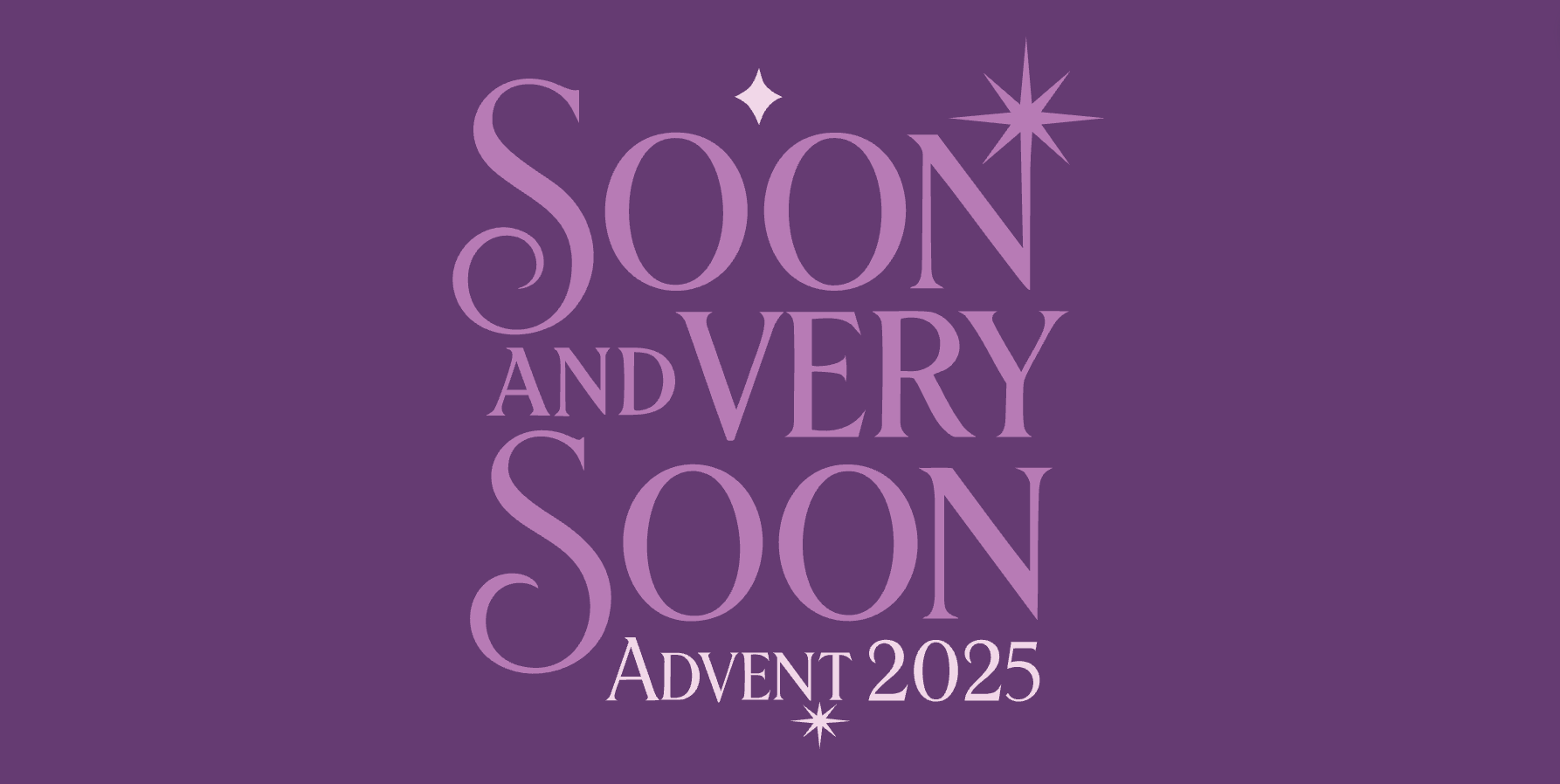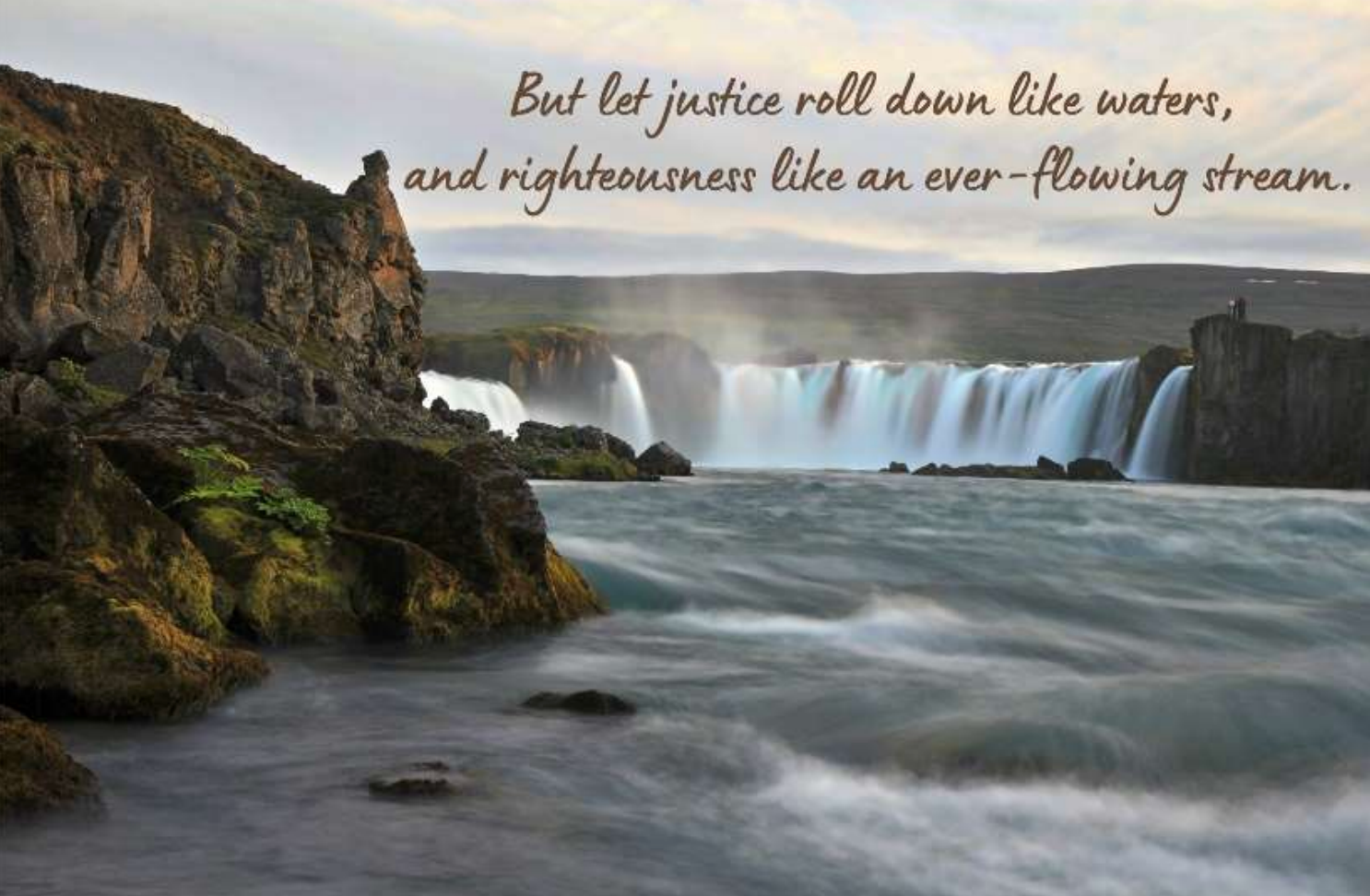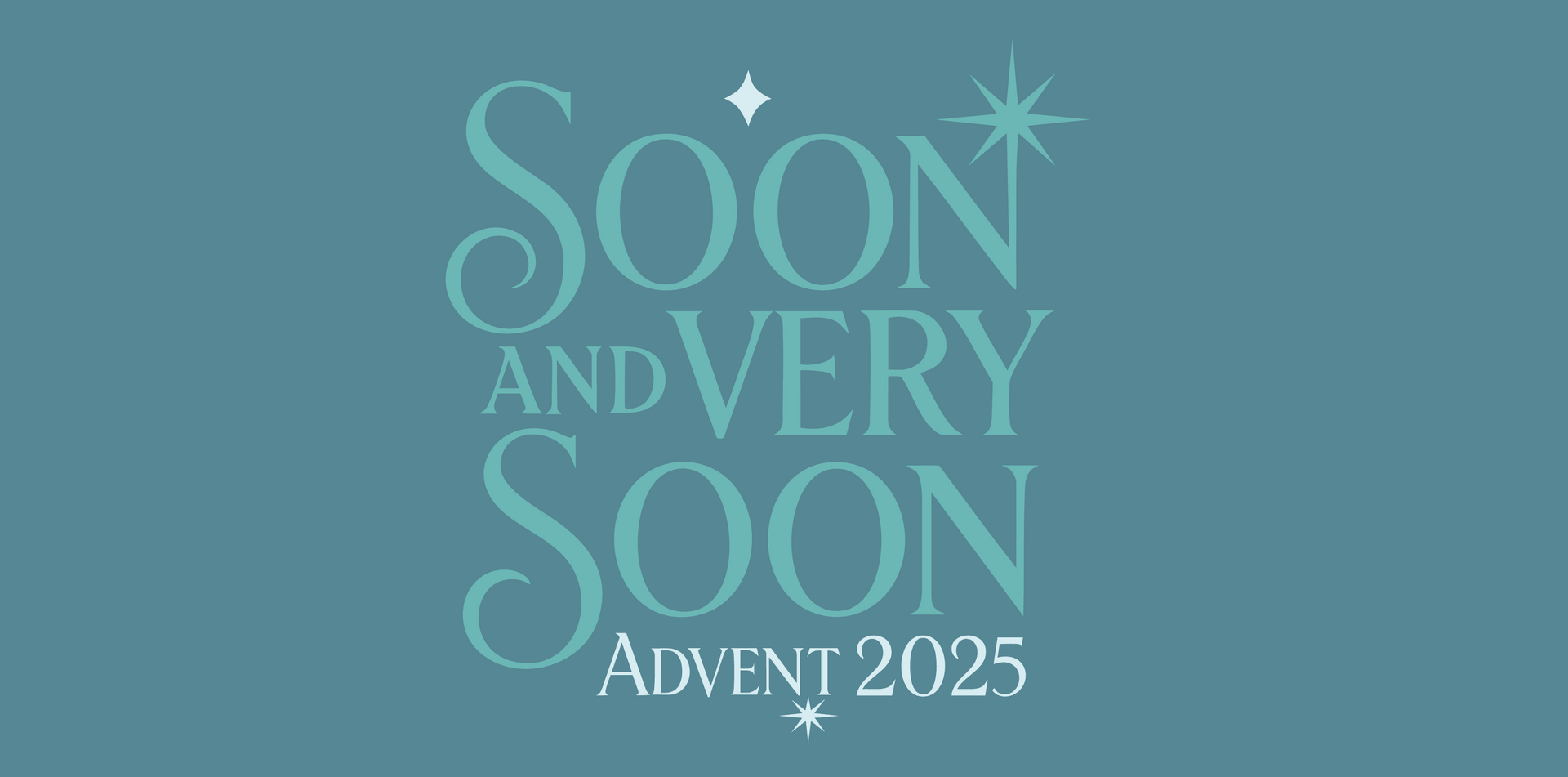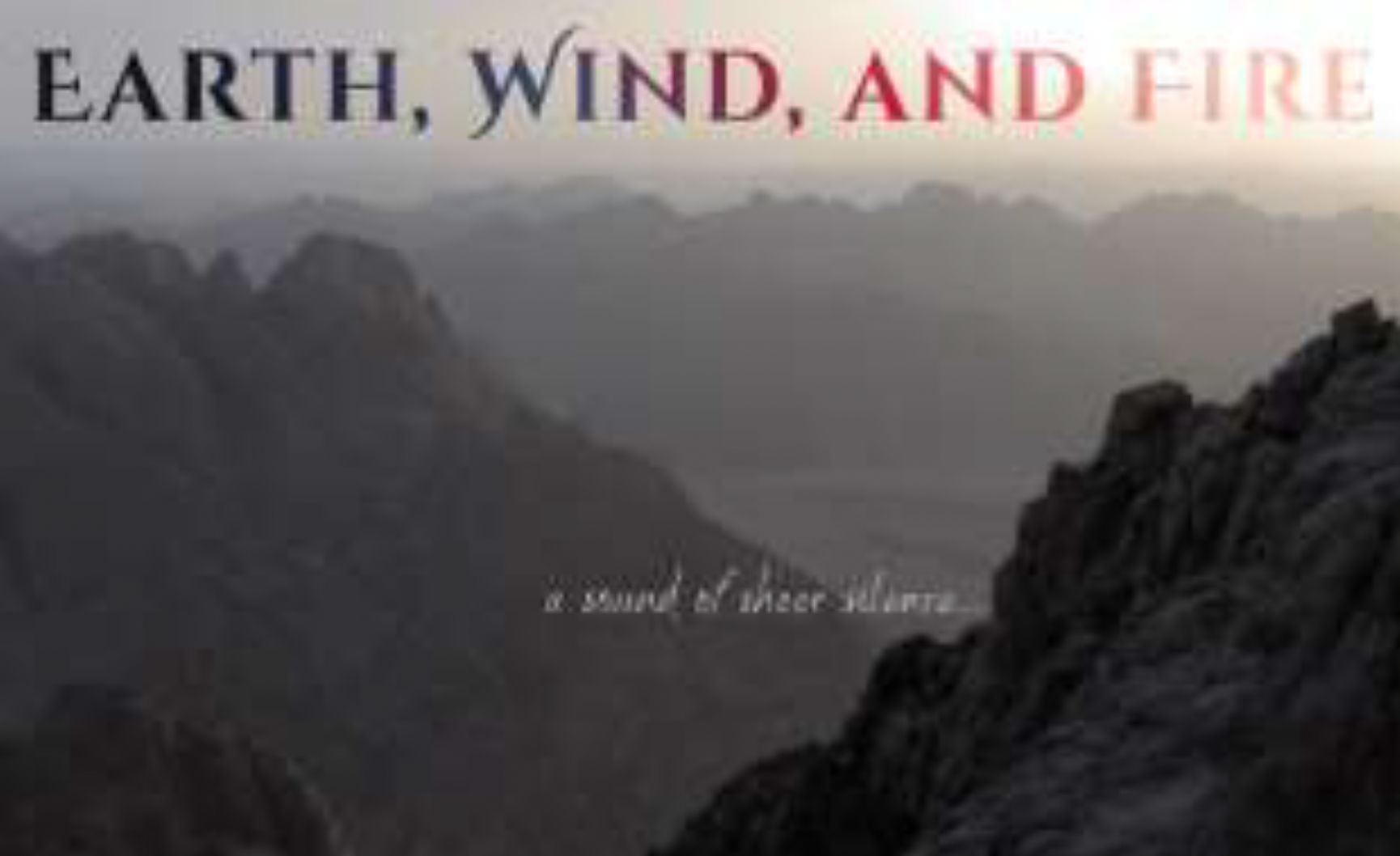Sermon 02.25.2024: Lent 2 - Ain't Gonna Study War No More
We are living, historically speaking, in peaceful times. Compared to almost every other century, people alive today are less likely to die because of violence and war. It doesn't feel like that when we read the news though, does it?
When world leaders rattle their sabers and try to convince us to live in fear, what if we could respond with a different vision instead?
This week we'll read a passage from Isaiah, where nations stream to God’s holy mountain so God can teach us the ways of peace.
Scripture
Isaiah 2:1-4
The word that Isaiah son of Amoz saw concerning Judah and Jerusalem.
In days to come the mountain of the Lord’s house shall be established as the highest of the mountains, and shall be raised above the hills; all the nations shall stream to it.
Many peoples shall come and say, ‘Come, let us go up to the mountain of the Lord, to the house of the God of Jacob; that he may teach us his ways and that we may walk in his paths.’
For out of Zion shall go forth instruction, and the word of the Lord from Jerusalem.
He shall judge between the nations, and shall arbitrate for many peoples; they shall beat their swords into ploughshares, and their spears into pruning-hooks; nation shall not lift up sword against nation, neither shall they learn war any more.
Sermon Text
Mountains in the MiddleEast are not like Mt. Everest or even Mt. Shasta. But across the wide river valleys, or arid plains, or fertile fields, the hills and mountains are very important.
In the time when this passage was written, those hills were often places of religious devotion. Mt Carmel is still a religious place. They were religious places because it is where the gods would clearly want to live. Think about the pantheon of Greek gods—they live on Mt Olympus, high and removed from the day to day struggles of humanity.
More than that, though, those hills were defensive spaces. Places where forts and ramparts were built so they could see the enemy approaching and defend their people, their animals, their independence.
I toured many of those hilltop fortifications when I was in the Holy Land. The crusaders left behind full-on, European-looking fortress castles on mountain tops throughout the Holy Land, as stations to protect the pilgrims headed to Jerusalem. It is very dislocating, when you’re driving across Syria to turn a corner and see a crusader castle sitting there on a hill.
So the idea of God’s mountain, where the Lord’s house would be established and all nations would stream to it—people would have said, yeah, that makes sense. God would naturally want the highest mountain so he could defend his space from the armies of other gods who kept invading.
As Isaiah was speaking to the people about God’s mountain, they were right there with him.
“Come, let us go up to the mountain of the Lord, to the house of the God of Jacob; that he may teach us his ways and that we may walk in his paths.”
Yes, this will be great. Let’s go to God’s mountain so God can teach us how to build better fortifications ourselves and how to vanquish and demolish our enemies. We are tired of being taken into captivity. We hate exile. We hate losing all of our property and belongings. Let’s go to the mountain of God so God can show us how to be stronger, mightier, and more successful in our military pursuits.
But then it takes a turn.
God shall judge between the nations, and shall arbitrate for many peoples; they shall beat their swords into plow shares, and their spears into pruning-hooks; nation shall not lift up sword against nation, neither shall they learn war anymore.
At this point, the people would have looked quizzically at Isaiah. Wait. What?
Why is God going to arbitrate for many nations? Isn’t he our God? The other nations already have their own gods, and by the way they are clobbering us in battle, they don’t appear to need more arbitration. This doesn’t make any sense at all.
Swords into plow shares? We’ll be ruined. That’s no way to protect a society. If we don’t study war, you can be darn sure the other countries are still going to and then where will we be???
We look around at our world, and we feel the people’s questioning of the prophecy. We see what military powers, including that of our own country, can do to people with fewer guns and bombs and warships.
We live in a world that feels like it is still studying war.
If you read before or after this passage in Isaiah, you’ll hear a scathing indictment that Isaiah delivers to the people from God. They have not been faithful. They have worshiped false idols. They have brought offerings to god as if that would make up for their refusal to heal their hateful hearts.
For Jerusalem has stumbled
and Judah has fallen,
because their speech and their deeds
are against the Lord,
defying his glorious presence.
When you read through the prophets, it feels a bit like voluntarily taking a beating, which is why we probably don’t do it that often. They do not hold back from telling the people about how they have fallen short, about how their behavior has led to the calamity they are facing.
And to our ears, it feels like a harsh thing to do to people who are already down, in exile or headed that way. But I also think it helps us to see our responsibility for the mess we’re in, gives us a minute to take stock of our own agency and capacity to fix things.
In chapter 1, God tells the people this:
Wash yourselves; make yourselves clean;
remove the evil of your doings
from before my eyes;
cease to do evil,
17 learn to do good;
seek justice,
rescue the oppressed,
defend the orphan,
plead for the widow.
If you want to end this war-torn violent madness in which you live, you can’t do it by working for yourself. You can’t just fortify your own house. You can’t hedge your bets by making offerings to other gods, just in case maybe they will help you more than Yahweh. You have to care for the oppressed, the orphan, the widow. If you want to know peace, you won’t find it without working for it for other people too. There is no private shalom.
Mother Teresa once said, “If we have no peace, it is because we have forgotten that we belong to each other…”
Sometimes scripture feels like it was written for people in another land and from another time. And sometimes, it feels very current, doesn’t it?
It feels like we are living in very violent times. As I mentioned last week, we have access to more news today, and in real time, than our ancestors knew. If you don’t feel like the Chronicle or the Times is giving you up to date information on what’s happening in Gaza, you can find people on Instagram and TikTok who are posting videos right now.
Images and video of violence in our communities and around the world are flooding our social media, our nightly news, and everywhere we turn.
It feels like we’re still studying war, doesn’t it?
And to be sure, there is still lots of violence in our communities and around the world. But we are living in one of the most peaceable eras in human history.
I’ve been reading Steven Pinker’s book, The Better Angels of our Nature: Why Violence has Declined.
He writes: “The human mind tends to estimate the probability of an event from the ease with which it can recall examples, and scenes of carnage are more likely to be beamed into our homes and burned into our memories than footage of people dying of old age.”[2]
I don’t have time to go through his 700-page book today, but I do commend it to your attention. He takes us on a tour from early human habitation on earth to today. And as you look back in time honestly, and not only by remembering the ‘good ol’ days’, you see that violence has in fact declined.
He writes: “People today think of the world as a uniquely dangerous place. It’s hard to follow the news without a mounting dread of terrorist attacks, a clash of civilizations and the use of weapons of mass destruction. But we are apt to forget the dangers that filled the news a few decades ago, and to be blasé about the good fortune that so many of them have fizzled out.” [3]
And the world where Isaiah preached to people that they should study war no more was one of the most violent moments in human history. In the library of books that make up the Bible, we see the violence. Biblical scholar Raymund Schwager says the Hebrew bible “contains over six hundred passages that explicitly talk about nations, kings, or individuals attacking, destroying, and killing others…”
Pinker points out many reasons for the decline of violence. Transitioning from hunting and gathering to agricultural civilization started the process. The rise of commerce helped. The feminization of cultures—when cultures listen to the voices of women, they tend to move away from the glorification of violence. (This isn’t me—it’s in the book! It’s science!)
The increase of cosmopolitanism—when you meet people from around the world, you can understand differences more easily. And what he calls the escalator of reason. He says it “can force people to recognize the futility of cycles of violence, to ramp down the privileging of their own interests over others’, and to reframe violence as a problem to be solved rather than a contest to be won.” [4]
Yes, the violence of today is terrible for the people still suffering from it. And it is still our work to do, to bring more peace to our homes, our communities, and our world.
He writes, “instead of asking, why is there war? we might ask, ‘why is there peace?’ We can obsess not just over what we have been doing wrong, but also over what we have been doing right. The shift is not toward complacency; we enjoy the peace we find today because people in past generations were appalled by the violence in their time and worked to reduce it, and so we should work to reduce the violence that remains in our time.” [5]
What would it look like for us to pay attention to how our ancestors stopped studying war, so that we could continue their work with more intention?
God shall judge between the nations,
and shall arbitrate for many peoples;
they shall beat their swords into plowshares,
and their spears into pruning-hooks;
nation shall not lift up sword against nation,
neither shall they learn war any more.
I invite you this week to attend to the news with a different awareness. Don’t ignore the violence happening in our own streets or around the world, but don’t only notice that. Does your source of news offer any good news? Does it give you anything that might be instructive for how to build a more peaceable world?
If it doesn’t, maybe start looking at other sources of news.
Does the news you read or watch tell you that peace is only to be found through militarism, or strongman leaders, or the subjugation of people who they tell you are “other”?
If it does, start looking for other sources of news.
Do you have a concrete way you are working for peace?
There are lots of ways to do it. Here are a few to get your imagination fired up.
This past week, many of us made and served dinner at the Interfaith Winter Shelter or volunteered at the food pantry on Saturday.
I have a friend who coordinates volunteers writing postcards to voters and helps volunteers pick up trash in the city.
I have friends who regularly engage with Moms Demand Action or other groups working to end gun violence.
Other friends volunteer as clinic escorts for Planned Parenthood, walking people past protestors so they can access healthcare.
Calvary’s sanctuary team helps people seeking asylum and needing help getting resettled in a new land. You can join their work.
Our Faith in Action team coordinates our volunteering with community agencies that feed, house, and educate people. You can join their work.
Our Racial Equity Initiative is helping us do important anti-racism work. You can join their work.
Every action we do toward peace is one step to unlearning war. Every sword that is melted down to become a plow or every gun dismantled to become a pruning hook is one step to unlearning war and toward relearning how to feed the world.
The Talmud states, “Do not be daunted by the enormity of the world's grief. Do justly now, love mercy now, walk humbly now. You are not obligated to complete the work, but neither are you free to abandon it.”
Every step we take toward peace builds on all the other steps others have taken before us. May we keep at it, that we, and more importantly, our descendants, may find ourselves ever closer to God’s holy mountain.
Amen.
2 page xxiii
3 p. 28
4 p. xxvi
5 p. xxvi
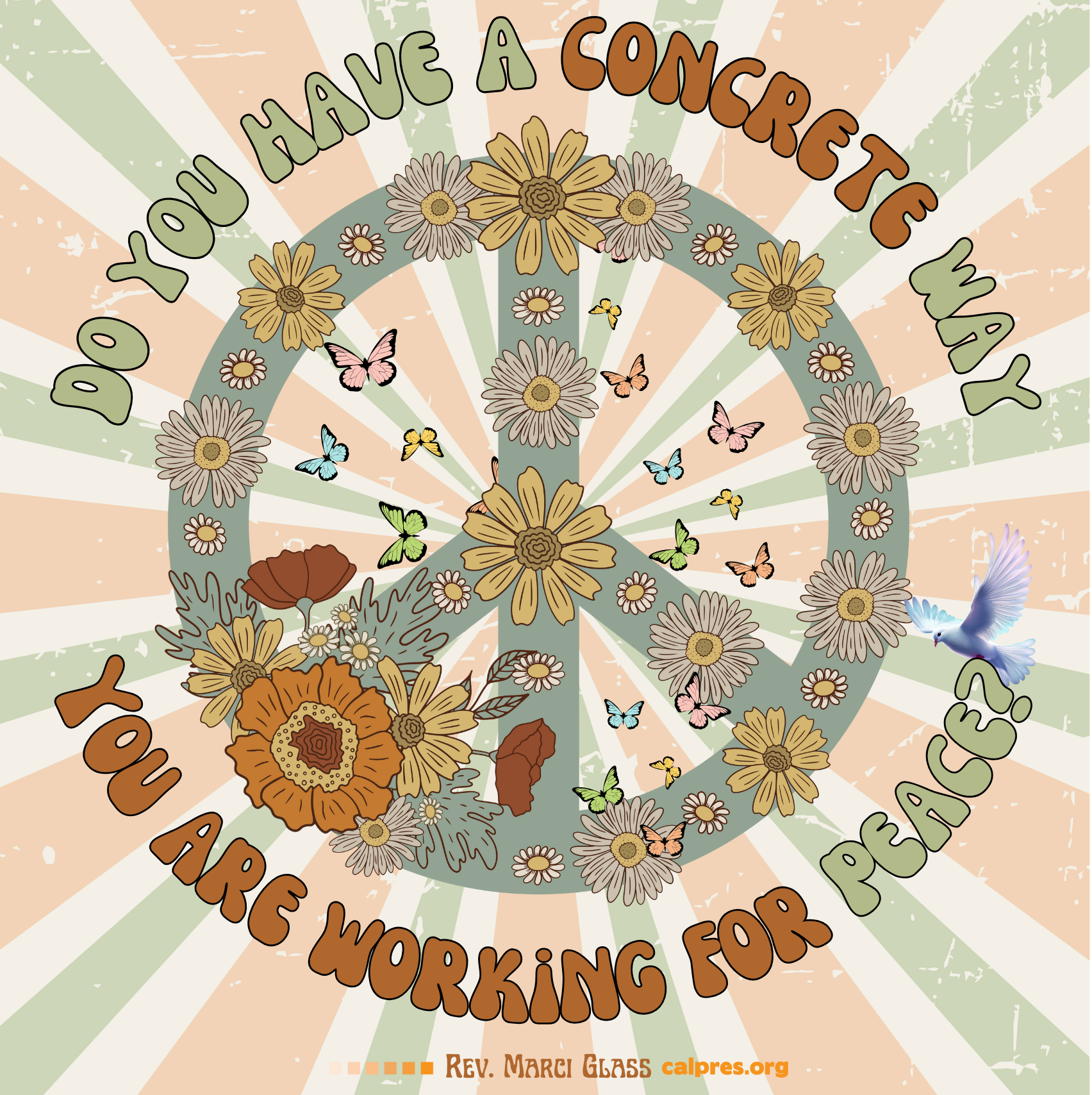
Art by Rachel Wolf



